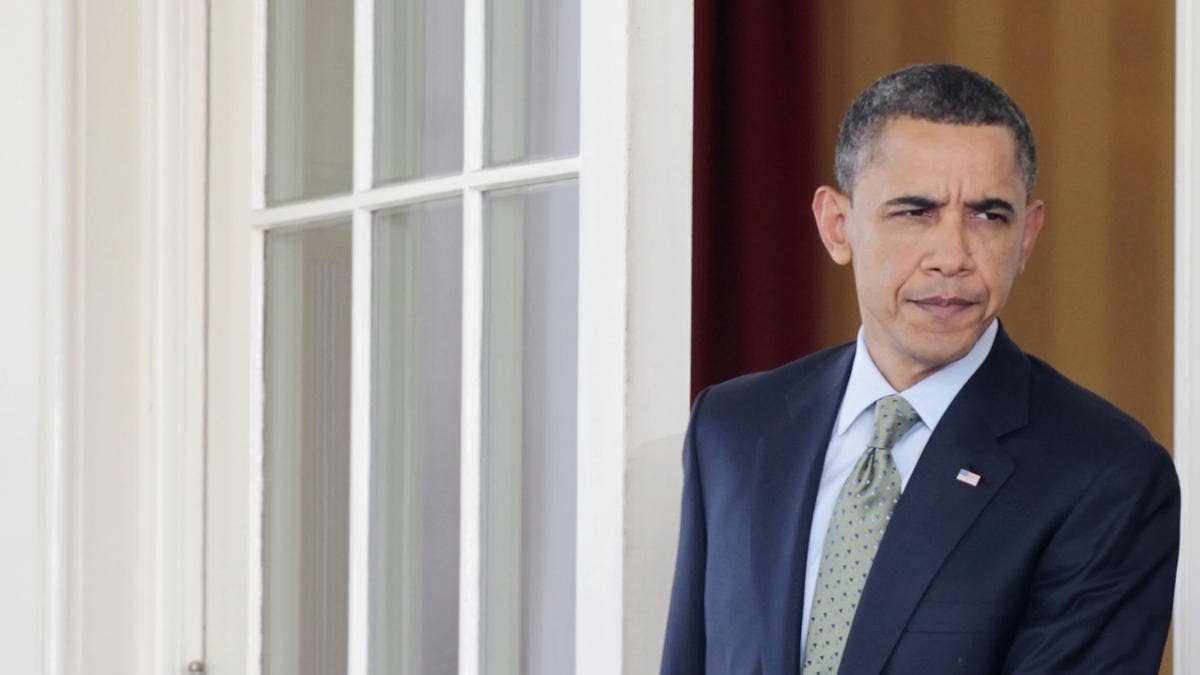
(File/AP Photo)
President Obama begins a five-day trip to South America Friday, his first to the region as president, highlighting countries friendly to the United States and potential economic opportunities for U.S. growth into the southern hemisphere.
But, with an American economy still not fully recovered and various international issues hanging over the head of the president, the trip presents a unique opportunity for him to solidify himself as a leader advancing free trade, U.S. exports and the overall recovery of the economy - something that could potentially boost his popularity with Republicans on Capitol Hill as free trade agreements with other Latin American countries languish.
The president will travel for five days in three countries - Brazil, Chile and El Salvador - nations considered stable, democratic and on the cusp of doing a lot of business with the United States.
"There's plenty of opportunity in the Americas. These are growing economies. These are dynamic societies. These are countries that are on the rise in many respects," White House Press Secretary Jay Carney said at the White House earlier this week. "It's very much in the United States' interest, in the hemisphere's interest, for us to signal that we're committed to the region and that we not, again, cede again, our own hemisphere which is incredibly important to us in terms of, again, not taking advantage of the potential of those relationships."
While the White House says all three countries are important to the U.S., experts say Brazil, which is about to hit the world stage in a big way with the 2014 World Cup and 2016 Summer Olympics, presents a unique opportunity right now. "There's a rising middle class, over 30 million people have been added to the ranks of the middle class and more coming every year so there are opportunities to sell consumer products. It's a huge market for the U.S. business community," says Susan Segal of the Council of the Americas.
In recognition of the business opportunities, the president will meet with U.S. and Brazilian leaders in Brasilia over the weekend - much like he did in India during his trip there in November -- to highlight the partnership between the two countries. But in terms of substantive deals in Brazil, critics say don't look too hard.
"Don't expect big breakthroughs. This could set the framework for some joint conversations," says Ray Walser of the Heritage Foundation. But Walser says the meetings with the new Brazilian President Dilma Rousseff could set the tone for future meetings. "The perception is that Rousseff has come in and she's indicated she's a bit more open to a more constructive and positive relationship with the United States."
Other critics say the trip should be an opportunity for President Obama to push on issues important to the U.S. especially with China and Iran.
"It's an opportunity for the president to give a wake-up call to his own administration to pay attention to the priorities for security and the economic well-being of the United States. And the Americas are extraordinarily important there," says Richard Noriega a former Assistant Secretary of State for the Western Hemisphere. "Brazil's an important economic partner but we ought to pay attention to the fact that China is eating our lunch in the petroleum market in Venezuela. And the Iranians are mining uranium, sowing their terrorist network, evading sanctions all with the help of Chavez and Venezuela. So the administration needs to really pay attention to the challenges that are happening right under their nose."
For its part, the White House is aware that all eyes are on President Obama in South America and says his popularity around the world only helps the U.S. relationship with these nations. "I think the opinion of U.S. leadership is up across the region. This type of trip only advances that. And again, it serves to, again, take a lot of the wind out of the sails of those who would want to capitalize on anti-American sentiment and make it more difficult for governments in the region to cooperate with us," said Deputy National Security Adviser Ben Rhodes.
While Republicans on Capitol Hill welcome recognition of South America, some say just going to the Southern Hemisphere isn't enough and the reality is there are trade deals with other nations being held up at home.
"Strong relations between the United States and our neighbors in the Americas is key," said Sen. Orrin Hatch, R-Utah. "Brazil, for example, is a rapidly growing economy and it's vital that we have strong economic ties with them. While the President is not traveling to either Colombia or Panama - two countries which we have negotiated trade agreements - we need to solidify those ties by considering the two long-languishing trade agreements with these two allies of the United States.




